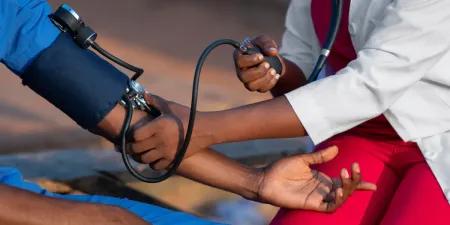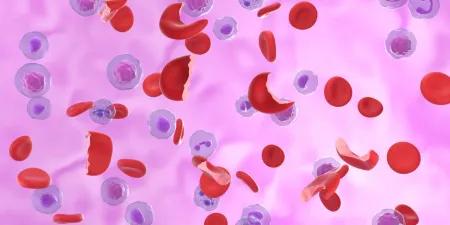
Chlamydia trachomatis is the most common sexually transmitted infection worldwide. It is caused by a bacterium. This bacterium can infect both women and men.
It is a common but often neglected STI in Africa. It affects more than 25 million people each year and can cause infertility if not treated promptly. It can also lead to serious health complications such as pelvic inflammatory disease (PID) and ectopic pregnancies.
Symptoms of chlamydia in women
Chlamydia is often asymptomatic . Symptoms may vary from one woman to another. These will be visible 2 to 3 weeks after infection. However, below are some signs that may alert women. If you notice these symptoms, it is important to consult a doctor promptly:
- Pelvic pain;
- Burning sensation when urinating;
- Heavy white discharge;
- Strong vaginal odors;
- Painful sexual intercourse;
- Vaginal bleeding.
It is important to observ the signs and symptoms in order to seek diagnosis as soon as possible. Early diagnosis is essential to prevent serious complications such as infertility.
Symptoms of Chlamydia in Men
Men are particularly vulnerable to the infection. Just like women, a man can be infected without showing symptoms . Here are some symptoms that men may observe after a few weeks or even days in some cases:
- Pain and swelling in the testicles;
- Tingling and itching in the urethra (the urethra is the urine outlet);
- Burning sensations during urination;
- Rectal pain;
- White discharge from the penis;
- Penile trouble.
How can Chlamydia be contracted?
Unprotected sexual intercourse
In women, for instance, the bacteria use the cells lining the mucous membrane to travel. This is how it spreads to the cervix, then to the uterus, and gradually to the fallopian tubes. Inflammation of the fallopian tubes can thus cause infertility and ectopic pregnancies in some women.
In men, from the urethra to the prostate
Bacteria enter the body through the urethra and gradually reach the prostate, where they can cause an infection.
Orally
This can occur when someone engages in oral sex with an infected partner. It's important to practice safe sex to reduce the risk of contracting the disease or any other STIs.
From an infected mother to the newborn during childbirth
Transmission occurs as the child passes through the infected cervix. The first symptoms in the child may appear after 15 days.
How to screen for Chlamydia?
Traditionally, serological tests have been used, but they are no longer recommended. The most reliable screening method is to use a Chlamydia PCR test. This test searches for the presence of the bacteria in a sample taken from the patient. It is capable of detecting even small amounts of bacteria present in the sample.
Furthermore, it is recommended to undergo screening with every change of partner.
What effective treatment is available for Chlamydia?
Antibiotics are the most effective and reliable means of curing the disease and preventing any long-term health issues. The type and duration depend on the severity of the infection but typically involve a course of antibiotics taken for at least seven days. Treatment can extend up to 21 days depending on a patient's condition and the type of antibiotic used. Both the infected individual and their partner should be treated simultaneously.
During the treatment, it is necessary to abstain from sexual intercourse or use condoms correctly. Treatment for Chlamydia does not provide immunity against the disease. This means that once cured, the patient can still be reinfected. Therefore, regular screenings should continue. This applies to the partner as well.
Opt for quality follow-up with a healthcare professional at a healthcare facility. Loosto assists you in arranging your appointment with a specialist.
Serious complications of chlamydia
Here are some serious complications of chlamydia if left untreated:
For women
- Ectopic pregnancies, which occur when a fertilized egg implants outside the uterus, typically in the fallopian tubes. This can cause severe abdominal pain and bleeding and can be life-threatening.
- Infertility
- Pelvic inflammatory diseases
- Increased risk of contracting HIV as it weakens the immune system, making it more vulnerable to other infections.
For men
It is important for men to be aware of the associated risks. The infection can lead to:
- Prostate inflammation
- Difficulty urinating
- Infertility
- Testicular pain and inflammation
- Skin lesions
- Joint pain and inflammation (rheumatism).
How to prevent chlamydia?
Here are some recommendations to prevent the disease:
- Use condoms is imperative during sexual intercourse.
- Regular screening is essential for those with an active sex life.
- Being faithful to one partner.
Key takeaways about chlamydia
Chlamydia trachomatis is a bacterial sexually transmitted infection (STI). It is the most common STI worldwide. It is highly contagious and can cause serious health problems if left untreated. The bacteria spreads through sexual contact during unprotected vaginal, oral, and anal sex. Additionally, it can also be passed from an infected mother to her baby during childbirth.
Chlamydia is often asymptomatic, meaning symptoms may not appear immediately after transmission.


